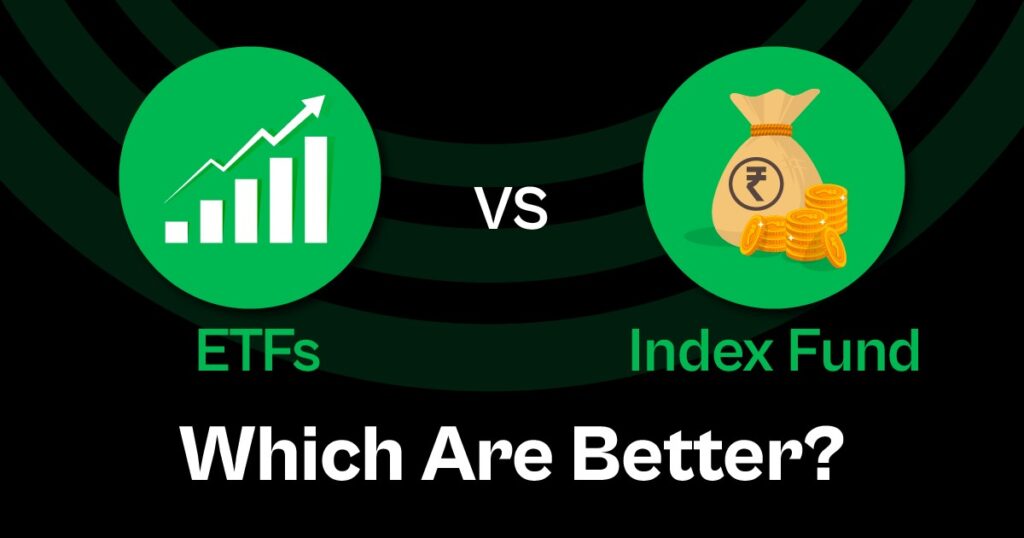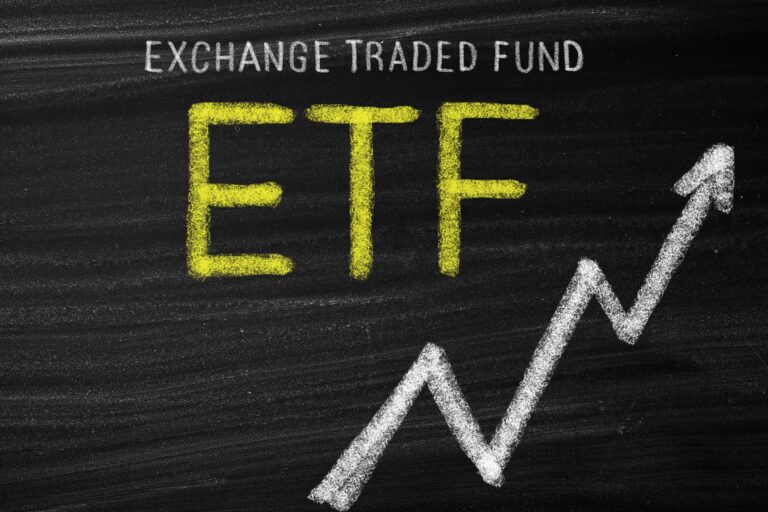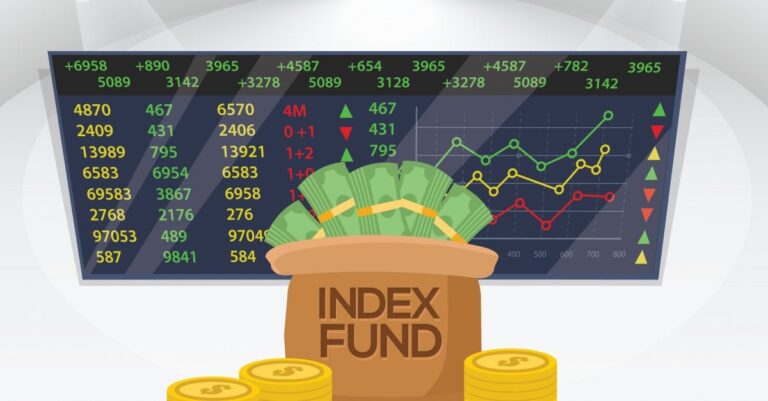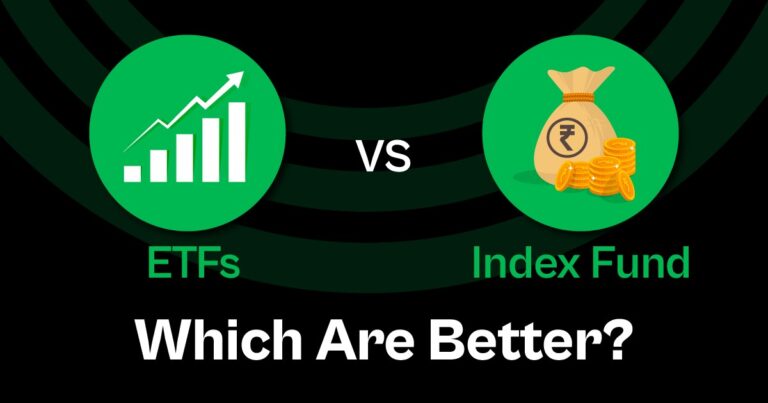
ETF vs Index Fund: Which One is Right for You?
When it comes to passive investing, ETFs (Exchange-Traded Funds) and Index Funds often top the list of choices for investors. Both options aim to replicate the performance of a specific index, such as the Nifty 50 or S&P 500, and offer low-cost exposure to diversified portfolios. However, they operate differently and are suited to different types of investors.
In this post, we’ll break down the key differences, advantages, and factors to consider when deciding between ETFs and Index Funds.
Table of Contents
What Are ETFs and Index Funds?
ETFs (Exchange-Traded Funds):
ETFs are investment funds that trade on stock exchanges, much like individual stocks. They aim to track the performance of an index, commodity, or asset class. Investors can buy or sell ETFs during market hours at real-time prices.
Index Funds:
Index funds are mutual funds that aim to replicate the performance of a specific index. Unlike ETFs, index funds are bought and sold at the end of the trading day, based on the Net Asset Value (NAV).
Key Differences Between ETFs and Index Funds
| Aspect | ETFs | Index Funds |
|---|---|---|
| Trading | Trades like a stock during market hours. | Bought and sold at the day’s NAV. |
| Minimum Investment | No minimum; you buy as many units as you can afford. | Minimum investment required, typically ₹500-₹5,000. |
| Liquidity | Highly liquid; real-time trading possible. | Less liquid; transactions take place end-of-day. |
| Expense Ratio | Generally lower than index funds. | Slightly higher due to fund management fees. |
| Transaction Costs | Brokerage fees apply. | No additional costs, but entry/exit load may apply. |
| Ease of Access | Requires a Demat and trading account. | Can be purchased directly through AMC or mutual fund platforms. |
| Pricing | Priced throughout the day. | Priced once daily at NAV. |
Advantages of ETFs
- Cost Efficiency: ETFs often have lower expense ratios compared to index funds, making them more cost-effective for long-term investors.
- Flexibility: You can buy or sell ETFs during market hours, allowing for better control over timing and execution.
- Tax Efficiency: ETFs are generally more tax-efficient due to their unique structure, which minimizes capital gains distributions.
- Transparency: ETFs disclose their holdings daily, offering complete transparency to investors.
Advantages of Index Funds
- Ease of Investment: Index funds are simpler to invest in, especially for beginners, as they don’t require a Demat or trading account.
- Automatic Investing: Many index funds offer SIP (Systematic Investment Plan) options, making them ideal for disciplined, long-term investors.
- No Intraday Stress: Since index funds are priced at the day’s end, investors avoid the anxiety of intraday market fluctuations.
- Lower Learning Curve: Index funds don’t require investors to track stock prices or understand trading mechanics.
Which Should You Choose?
The decision between ETFs and Index Funds depends on your financial goals, investment style, and risk tolerance.
Choose ETFs if:
- You prefer real-time trading flexibility.
- You are comfortable using a Demat account.
- You seek lower expense ratios and tax efficiency.
- You’re an active investor who monitors the market.
Choose Index Funds if:
- You are a beginner looking for simplicity.
- You prefer SIPs for disciplined investing.
- You don’t want to manage a trading account.
- You are okay with slightly higher costs for convenience.
ETFs vs Index Funds: A Case Study
Consider two investors, Rahul and Priya:
- Rahul prefers flexibility and has a Demat account. He invests in ETFs tracking the Nifty 50, taking advantage of intraday price movements and low expenses.
- Priya, on the other hand, prefers a hands-off approach. She invests in an Index Fund via SIP, focusing on long-term wealth creation without worrying about market fluctuations.
Both approaches are effective, depending on individual preferences.
Conclusion
Both ETFs and Index Funds are excellent options for passive investors. ETFs are ideal for cost-conscious, active traders, while index funds cater to those who value simplicity and automation. The key is to align your choice with your investment goals, time horizon, and level of market expertise.
Whether you opt for ETFs or Index Funds, remember that both aim to deliver steady returns with minimal costs, helping you build wealth over time.





